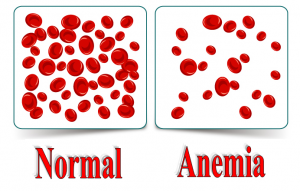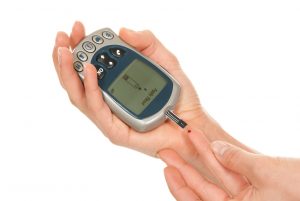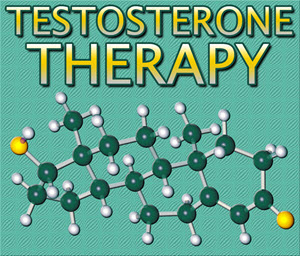
Do you have trouble maintaining adequate energy levels throughout the day? Fatigue is a major issue that can significantly disrupt the quality of life.
If you find yourself suffering from fatigue, it's important for you to understand the causes of fatigue and how your lifestyle habits and your physiology may be preventing you from feeling your best.
Video Link: https://vimeo.com/293640526
Video Download: Click Here To Download Video
Video Stream: Click Here To Stream Video
Video Link: https://vimeo.com/293641301
Video Download: Click Here To Download Video
Video Stream: Click Here To Stream Video
Video Link: https://vimeo.com/293642127
Video Download: Click Here To Download Video
Video Stream: Click Here To Stream Video
As you read through this list, take stock in yourself, and try to figure out which of these causes may be contributing to your poor energy levels.
By recognizing what is preventing you from being at your best, you can take steps to correct the problem.
Inadequate Sleep Leads to Fatigue
One of the most common causes of fatigue is directly related to the amount of rest that you get. The average adult should get between seven and nine hours of sleep per night.
Every person is different, but sleep is the period during which our bodies rest and rejuvenate, and if you have chronic issues getting enough sleep, this will disrupt your production of vital hormones such as Testosterone and Human Growth Hormone, and it will leave you groggy and weighed-down in the morning.
What Can I Do To Sleep Better?
If you feel that sleep may be contributing to your feeling of fatigue, make the concerted effort to stick to a set sleeping schedule for a while. Make it your number one priority. Also, take steps to make your bedroom a place designed explicitly for your rest and relaxation.
Too many people watch television and play on their phones and computers in bed. Also, cover up light sources in your bedroom while the lights are off to promote better sleep. Ambient light can heavily disrupt sleep.
If your personal efforts to improve your sleeping habits are ineffective, you should contact a medical professional, because you could be suffering from a condition that is preventing you from sleeping well, such as sleep apnea or insomnia.
Sleep Apnea Disrupts Normal and Healthy Sleep
Many people get the sleep they need and wake up fatigued and tired. One of the leading causes of fatigue and poor sleep among those that sleep an average of eight hours per night is sleep apnea.
Sleep apnea is a condition in which your breathing becomes obstructed while you are asleep, which reduces the amount of oxygen available to your brain which disrupts your natural sleeping rhythms and can even lead you to wake up gasping for breath in the middle of the night.
Many people don't even realize that they wake up. Often people with sleep apnea also suffer from hypersomnia, because they sleep 9-10 hours and still wake up tired, and even able to fall back asleep!
What Can I Do to Relieve Sleep Apnea?
There are some lifestyle changes that can help many people with sleep apnea overcome their condition. For example, smokers are more likely to experience sleep apnea than non-smokers, and some people find that just by quitting smoking, they can overcome their condition.
Also, people that are overweight or obese are more likely to suffer from sleep apnea. Losing weight relieves pressure on the windpipe and can help some people sleep easier.
Of course, some people are just structurally predisposed to sleep apnea, and the only effective way to relieve the condition is to meet with a medical professional.
 There are sleep specialists that you can meet with that can perform a sleep study, in which you fall asleep while being monitored in order to see exactly how well or poorly that you sleep.
There are sleep specialists that you can meet with that can perform a sleep study, in which you fall asleep while being monitored in order to see exactly how well or poorly that you sleep.
If you are diagnosed with sleep apnea, there are devices designed to help you overcome the condition. Some people benefit simply from customized mouthpieces which facilitate an open airway, whereas others need a CPAP machine, which pushes a soft breeze of air into the nose and mouth to keep your airways from becoming disrupted.
Eat Smarter to Improve Energy Levels
Many people experience fatigue not because of sleep, but because they have eating habits that limit the amount of energy available to them.
Some people are tired because they don't eat enough, or don't eat enough at the right times. Other people are fatigued because they don't eat the right foods to facilitate optimal energy production.
By eating a healthy diet and focusing on reasonable meals and snacks distributed throughout the day, you get your body and mind running on all cylinders, and you maintain healthy and normalized blood sugar levels.
How Can I Eat Better to Increase My Energy Levels?
Two important aspects of maintaining energy levels are to make sure that you have a source of complex carbohydrates and a source of protein in each meal.
Your body breaks down carbohydrates to provide you with immediate energy, and complex carbohydrates are superior to simple carbohydrates because your body takes longer to break them down, which prevents blood sugar spikes.
Protein is important because proteins are tools that your body uses to facilitate action and recover from your day-to-day activities.
One of the best ways to keep your energy levels normalized is to eat five times per day, three modest meals, and two snacks distributed evenly across the day.
Anemia is a Relatively Common Medical Cause of Fatigue
Anemia is a pretty serious medical condition, and one of the ways that it manifests itself is through a lack of energy.
Your blood cells use iron to help transport oxygen throughout the body, and if you don't have enough iron in your diet, or you have a condition which disrupts  the way that your body uses iron, you will have trouble getting through the day without serious energy issues.
the way that your body uses iron, you will have trouble getting through the day without serious energy issues.
Anemia is more common among women than men, but both sexes can experience the condition.
How Can I Relieve the Effects of Anemia?
For many people, Anemia is a nutritional disorder, caused by not getting enough iron.
For other people, there are biological reasons why their body doesn't appropriately absorb iron, and this means that the individual needs more iron in their diet than the average person to meet the needs of their body.
The two best ways to increase your iron intake are through diet and through supplementation, or a combination of both.
There are many foods that can help you get your fill of iron, including enriched cereals, beans, shellfish, liver, and lean meat.
The average amount of iron that you need daily depends upon your gender, your age, and whether you are currently pregnant or nursing. If increasing your iron intake doesn't help, talk to a professional, because you could be suffering from a more serious condition which inhibits your body's ability to utilize iron.
Depression Could Be the Root Cause of Your Fatigue
Depression often gets misunderstood. Like anxiety, people think of depression as a condition which only affects the mind, but in truth, all conditions which affect the mind also distinctly affect the body.
In particular, depression can significantly impact sleeping habits. Some people have trouble sleeping as a result of depression, whereas others stay in bed all day and still don't find adequate rest.
If you've been feeling a lack of appetite in combination with headaches and fatigue, you could be suffering from depression without fully being aware of it. If  you've been experiencing feelings of emotional numbness and physical exhaustion for longer than three weeks or so, you should go see a professional.
you've been experiencing feelings of emotional numbness and physical exhaustion for longer than three weeks or so, you should go see a professional.
How Can I Relieve Depression?
Some people respond well to mild depression simply by exercising and adjusting to a healthier diet, but many people suffer from depression because of significant issues in their own life, hormone, and neurological imbalance, or a combination of both.
For people with moderate to severe depression, the two best options are to visit a psychologist for cognitive therapy or to consider a medical treatment to alleviate underlying issues.
Hypothyroidism Can Cause Severe Fatigue
Some people experience fatigue because of hormonal disorders. The thyroid, hypothalamus, and pituitary are all important areas with a relationship to energy production and distribution, and the thyroid gland controls hunger, satiation, and metabolism.
People with Hypothyroidism don't produce enough hormones associated with metabolic upregulation, which leads to feelings of exhaustion and tiredness. This reduction in metabolism also frequently leads to weight gain.
What Can I Do If I Suffer from Hypothyroidism?
If you believe that you may be suffering from Hypothyroidism, an endocrinologist or other hormone specialist can test your hormone levels and provide confirmation.
For Hypothyroidism, the best course of action is almost always in the form of Bio-Identical Thyroid Hormones which can get your Thyroid Hormone Levels back to a more optimal balance.
Too Much Caffeine Can Lead to Fatigue
It's important to remember that, although caffeine is ubiquitous in American society, it is still a drug. Caffeine works by imitating the function of Adenosine in the bloodstream and the brain, and people use caffeine either to get a boost of energy or to stave off cravings.
Caffeine in and of itself isn't that bad for you when used in moderation, but when used at the wrong time, too much, or too often, it can lead to issues.
Excess caffeine intake can lead to jitteriness, increased blood pressure, and  elevated heart rate. Of course, if you're trying to go to sleep and your body is still on edge, this is going to cause some major issues.
elevated heart rate. Of course, if you're trying to go to sleep and your body is still on edge, this is going to cause some major issues.
On top of that, some people drink or take so much caffeine that they actually overwhelm their bodies, which simultaneously diminishes the benefits of caffeine and leads to feelings of fatigue.
How Can I Improve Energy Levels By Changing My Caffeine Consumption?
Depending on your core issue with caffeine, there are two main things that you can do. If caffeine is preventing you from getting to sleep and thereby contributing to fatigue.
Cut back on your caffeine consumption, and only drink caffeine before one or two in the afternoon. If you believe that your main issue is the result of fatigue caused by the over-consumption of caffeine, itself, cut back on the amount of caffeine that your drink per day, and think about entirely cutting out caffeine over the course of a few weeks.
The symptoms of caffeine-induced fatigue are very similar to those of caffeine withdrawal, so it is important to taper off consumption.
Urinary Tract Infection Can Lead to Fatigue
You may be surprised to find out that a UTI can lead to fatigue. Most people understand that UTIs lead to strong feelings of urinary urgency and pain, but most don't realize that UTIs can have other, more hidden effects.
Many patients experience fatigue explicitly as the result of a Urinary Tract Infection, but, as you can imagine, this correlation often isn't made until the condition becomes worse and leads to other symptoms.
How Can I Treat a UTI?
Urinary Tract Infections are bacterial infections, and antibiotics do the trick when treating the condition. If you are fatigued, think about going in for a physical, and a simple urine test can determine if you need treatment. One round of antibiotics will likely cure both the UTI and your energy burden simultaneously.
Diabetes is a Common Cause of Fatigue
Diabetes is a condition in which your body doesn't efficiently transport glucose in the bloodstream to target cells where it is broken down into energy.
In Type-2 Diabetes, this is because the body develops Insulin Resistance, as insulin is the primary hormone that the body uses to facilitate this transport.
If your cells aren't getting enough energy via glucose, this leads directly to feelings of fatigue, not unlike that which you might experience if you weren't eating enough food to meet your energy requirements.
If your energy levels have been sapped for an extended period of time for reasons that you can't explain, talk to your doctor.
What Can Be Done to Treat Diabetes?
Depending on the severity of your condition, there are a number of things that you can do to relieve the symptoms associated with Diabetes.
For some people, a specialized exercise and nutrition regimen may be enough to

Diabetes measurement glucose sugar level blood test for diabetic patient using new smart glucometer test isolated on a white background
right the ship, whereas other people may need to take certain medications or start taking Insulin to facilitate energy transfer.
Diabetes is a serious and significant disorder, associated with a variety of dangerous conditions that can shorten your lifespan. If you think you may be suffering from the condition, talk to a doctor as soon as possible.
Dehydration Can Lead to Feelings of Fatigue
Many people experience fatigue because they don't drink enough water. Our bodies need a lot of water to make it through the day, whether you work at a construction site or even just behind a desk.
A lot of people think that thirst is a sign of one becoming dehydrated, but in reality, if you are feeling thirsty, your body is already suffering as a result of dehydration. If you're drinking enough water, you should never actually feel thirsty.
How Can I Relieve Dehydration Effectively?
The most important thing is to recognize you aren't getting enough water each day and taking the obvious and correct step to resolve the issue—drink more water! Ideally, when you urinate, the liquid should be a pale yellow.
If your urine is dark, that's a major sign of dehydration. Consume the equivalent of eight glasses of water per day as a baseline. If you exercise regularly or work out, plan to drink more.
Drink preemptively. Have a couple of glasses of water before you get active, and drink throughout whatever you are doing. After you've finished working, have two more glasses of water.
If you are a drinker, remember that alcohol dehydrates you. To limit your hangover and feel better, try to drink a glass of water for each beverage you consume.
Also, waking up with a glass of water will kickstart your metabolism and get you energized for your day, warding off fatigue from the start!
Heart Disease Can Contribute to Fatigue
Fatigue appears in many forms and has many apparent causes. If you primarily get fatigued when you engage in routine activities such as weeding or housecleaning, this could mean that your heart is having trouble keeping up with your body's basic activity level.
This is a sign of heart disease. If, as you grow older, you notice that your capacity for these sorts of physical activities is in decline, make an appointment with your physician to discuss heart disease.
What Can Be Done to Improve Energy Levels In Spite of Heart Disease?
Although heart disease is a serious and dangerous issue, there are things that can be done to improve your life and your energy levels. For example, by improving your diet and activity level, you can improve your cardiovascular capacity.
There are also medical treatments which can facilitate circulation and improve your heart's strength. There are also therapy techniques and rehabilitation strategies that can improve your heart health.
Circadian Disruption Can Lead to Fatigue
For many people, just getting enough sleep at night isn't enough. Many people have issues with their energy levels because they don't have a steady sleep-wake cycle.
Your circadian rhythm governs the way that your body uses and releases hormones. The body uses cortisol to stimulate you into wakefulness and melatonin to encourage sleep, for example.
If your body's signaling gets out of whack, you may find yourself wide awake when you should be asleep, or you may sleep when your schedule demands it, but your body doesn't get the rest that it should from that sleep.
This condition is often referred to as Shift Work Sleep Disorder.
What Can I Do to Sleep Better In Spite of Shift Work and Other Disturbances?
If you are having trouble with restful sleep as a result of Shift Work Sleep Disorder or other issues that prevent you from sleeping restfully at an ideal time, there are some things you can do to induce restfulness.
For example, we sleep best when things are comfortably cool, quiet, and dark. Make sure that the room doesn't get uncomfortably warm, and light-proof your bedroom to keep light from disrupting your sleep.
Consider buying a sleep mask to block out light if you don't find it too uncomfortable.
If your efforts to improve your sleep quality aren't working out, talk to a sleep specialist. There are some medications and over-the-counter remedies that will likely aid you in your quest for rest!
Food Allergies Can Disrupt Your Sleep
Most people are aware of the major issues related to food allergies, but sometimes, you may simply have a mild allergy or intolerance that affects your health in ways you wouldn't expect.
For example, foods that you have a mild allergy to may cause you to become sleepy or exhausted, the opposite of what you are looking for in a healthy diet!
What Should I Do If I Suspect that an Unknown Allergy is Impacting My Energy Levels?
If you think that you may have an allergy that is causing you fatigue, take the time to systematically remove foods from your diet to assess the effect that they may be having.
If that sounds too difficult or time-consuming, you can talk to a physician and arrange for an allergy test to provide clinical evidence of underlying food allergies.
Fibromyalgia and Chronic Fatigue Syndrome Can Lead Directly to Feelings of Fatigue
If you have been suffering from relatively long-term fatigue and your attempts to rectify your situation have been all for naught, you could be suffering from Fibromyalgia or Chronic Fatigue Syndrome.
Both of these conditions are associated with an overwhelming sense of fatigue that can be so severe that it makes it difficult to perform the day-to-day tasks necessary to get by optimally.
What Can I Do to Alleviate Fatigue Associated with Chronic Fatigue Syndrome and Fibromyalgia?
Both of these conditions significantly suppress energy levels, and both take a  concerted effort in order to overcome the associated fatigue, and you should talk to your doctor about a therapy regimen that can improve your health and energy levels.
concerted effort in order to overcome the associated fatigue, and you should talk to your doctor about a therapy regimen that can improve your health and energy levels.
A few things that you can do are engage in regular, light exercise, improve your sleeping routine, and adjust your schedule to fit your body's needs.
Contact Us Today For A Free Consultation

- Ten Simple Steps That You Can Take To Knock Out Stress [Last Updated On: May 2nd, 2024] [Originally Added On: June 11th, 2020]
- Natural, Simple Ways to Improve Your Sleeping Habits [Last Updated On: April 18th, 2024] [Originally Added On: June 26th, 2020]
- Ten Ways to Manage Cholesterol and Testosterone Levels [Last Updated On: May 30th, 2024] [Originally Added On: July 16th, 2020]
- Five Kinds of People that Have a Lot of Sex! [Last Updated On: April 11th, 2024] [Originally Added On: July 17th, 2020]
- Ditch the Alcohol if You Want to Maximize the Benefits and Gains From Weightlifting [Last Updated On: January 22nd, 2024] [Originally Added On: July 18th, 2020]
- 13 Issues That Can Kill Your Libido [Last Updated On: March 15th, 2024] [Originally Added On: July 19th, 2020]
- Ten Ways to Enhance Your Metabolism [Last Updated On: June 28th, 2024] [Originally Added On: July 20th, 2020]
- Testosterone's Effects Upon the Human Body [Last Updated On: June 11th, 2024] [Originally Added On: August 9th, 2020]
- Fifteen Foods That Can Help You Get Your LDL Cholesterol Under Control [Last Updated On: May 1st, 2024] [Originally Added On: November 28th, 2020]
- Exercise Optimizes Testosterone Production [Last Updated On: January 29th, 2024] [Originally Added On: February 13th, 2021]
- How to Get Bigger Arms [Last Updated On: November 25th, 2024] [Originally Added On: March 14th, 2021]
- It’s True: Stress Causes Hair Loss and Thinning Hair, According to Science [Last Updated On: August 29th, 2024] [Originally Added On: May 4th, 2021]
- Magnesium and Preventing Kidney Stones [Last Updated On: October 22nd, 2024] [Originally Added On: January 18th, 2023]
- Get Pro-active, Don’t Depend on a GP only! [Last Updated On: October 24th, 2024] [Originally Added On: February 1st, 2023]
Word Count: 3082




















